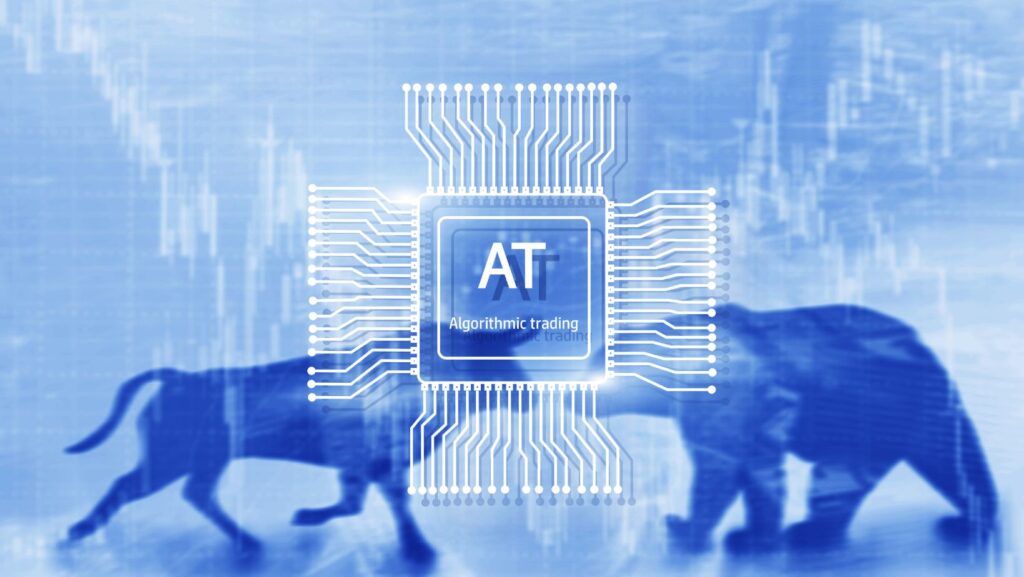Artificial Intelligence (AI) has revolutionized various industries, and one of its most transformative impacts has been in the realm of algorithmic trading. Algorithmic trading, also known as algo-trading, utilizes computer algorithms to automate trading strategies and execute orders at speeds and frequencies that are impossible for human traders.
AI enhances these algorithms by incorporating advanced techniques such as machine learning (ML), natural language processing (NLP), and deep learning, thereby optimizing trading performance and decision-making processes.
Evolution of Algorithmic Trading
Algorithmic trading has evolved significantly since its inception. Initially, it involved simple rule-based systems that executed trades based on predefined criteria, such as moving averages or price thresholds.
Over time, these systems have become more sophisticated, integrating complex statistical models and real-time data analysis. The integration of AI into algorithmic trading marks the latest phase in this evolution, bringing unprecedented accuracy and efficiency to trading strategies. Also, TradingView integrates with a variety of brokers, providing users with seamless access to live trading and extensive market data directly through the platform. Check them out through our blog.
How AI Enhances Algorithmic Trading
Data Analysis and Pattern Recognition
AI algorithms excel at analyzing vast amounts of data quickly and identifying patterns that human traders might overlook. By leveraging machine learning, AI systems can learn from historical data, recognize market trends, and predict future price movements with greater accuracy. This capability is particularly useful in high-frequency trading (HFT), where rapid decision-making is crucial.
Sentiment Analysis
AI, particularly through NLP, can analyze news articles, social media posts, and other textual data to gauge market sentiment. This form of sentiment analysis helps traders understand the collective mood of the market, which can be a significant predictor of price movements. For instance, positive news about a company can drive its stock price up, while negative news can lead to a decline.
Risk Management
Risk management is a critical aspect of trading, and AI enhances this by providing more accurate risk assessments and adaptive strategies. AI algorithms can simulate various market scenarios and stress test trading strategies to ensure they can withstand market volatility. This predictive capability helps in minimizing potential losses and optimizing the risk-reward ratio.
Execution Optimization
AI algorithms can optimize trade execution by determining the best times to buy or sell assets, considering factors such as market depth, liquidity, and order book dynamics.
This ensures that trades are executed at the most favorable prices, reducing transaction costs and slippage. AI-driven execution strategies can also adapt to changing market conditions in real time, further enhancing trading efficiency.
Types of AI in Algorithmic Trading
Machine Learning (ML)
Machine learning algorithms are fundamental to AI-driven trading. They learn from historical data and improve their predictions over time without being explicitly programmed. Techniques such as supervised learning, unsupervised learning, and reinforcement learning are commonly used to develop predictive models for stock prices, market trends, and trading signals.
Deep Learning
Deep learning, a subset of machine learning, involves neural networks with multiple layers that can model complex relationships in data. In trading, deep learning models can analyze intricate patterns and nonlinear relationships in market data, providing more accurate and nuanced predictions. These models are particularly effective in processing large datasets and handling high-dimensional data, such as historical price series and technical indicators.
Natural Language Processing (NLP)
NLP enables AI systems to understand and process human language. In trading, NLP is used for sentiment analysis, extracting relevant information from news articles, earnings reports, and social media. This helps traders make informed decisions based on the latest market developments and sentiment trends.
Benefits of AI in Algorithmic Trading
Speed and Efficiency
AI algorithms can process and analyze data at incredible speeds, far surpassing human capabilities. This speed advantage allows traders to capitalize on fleeting market opportunities and execute trades with minimal latency.
Enhanced Accuracy
By leveraging advanced statistical models and continuous learning, AI algorithms provide more accurate predictions and trading signals. This reduces the likelihood of errors and improves overall trading performance.
Adaptability
AI-driven trading systems can adapt to changing market conditions in real-time. This adaptability ensures that trading strategies remain effective even in volatile markets, providing traders with a competitive edge.
Cost Reduction
Automated trading reduces the need for human intervention, lowering operational costs.
Additionally, AI optimized trade execution, reducing transaction costs and improving profit margins.
Challenges and Considerations
Despite its advantages, AI in algorithmic trading comes with challenges. These include the need for high-quality data, the risk of overfitting models to historical data, and the potential for unintended consequences due to the complexity of AI algorithms. Moreover, regulatory considerations and ethical concerns about market manipulation and transparency must be addressed.
Conclusion
Artificial Intelligence is reshaping the algorithmic trading landscape, offering unparalleled speed, accuracy, and efficiency advantages.
By integrating advanced data analysis, sentiment analysis, and risk management capabilities, AI enhances the effectiveness of trading strategies. However, traders must navigate the associated challenges and ethical considerations to fully harness the potential of AI in algorithmic trading. As AI technology continues to evolve, its role in the financial markets is set to become even more pivotal, driving innovation and transforming trading practices worldwide.




More Stories
Military Gift Ideas for Every Veteran or Active Duty Member
Beyond the Stars: Exploring Immersive Gameplay in Space-themed Slot Machines
Spinning Tales: Exploring the Influence of Manga in Slot Machines